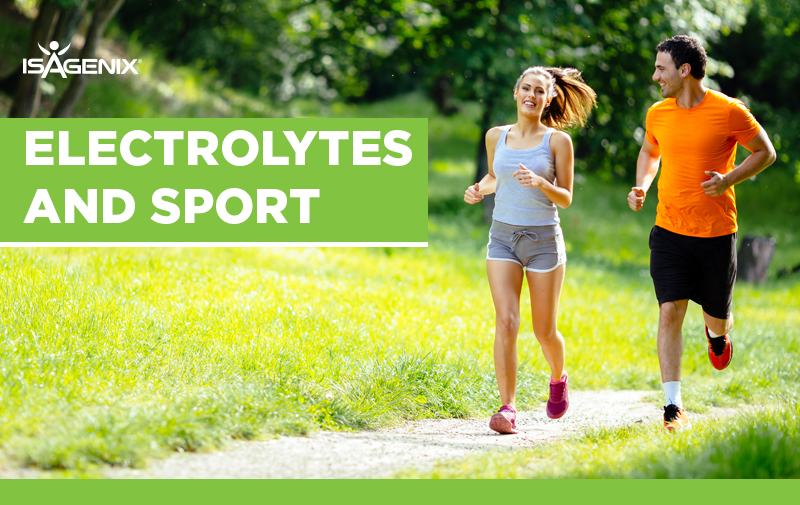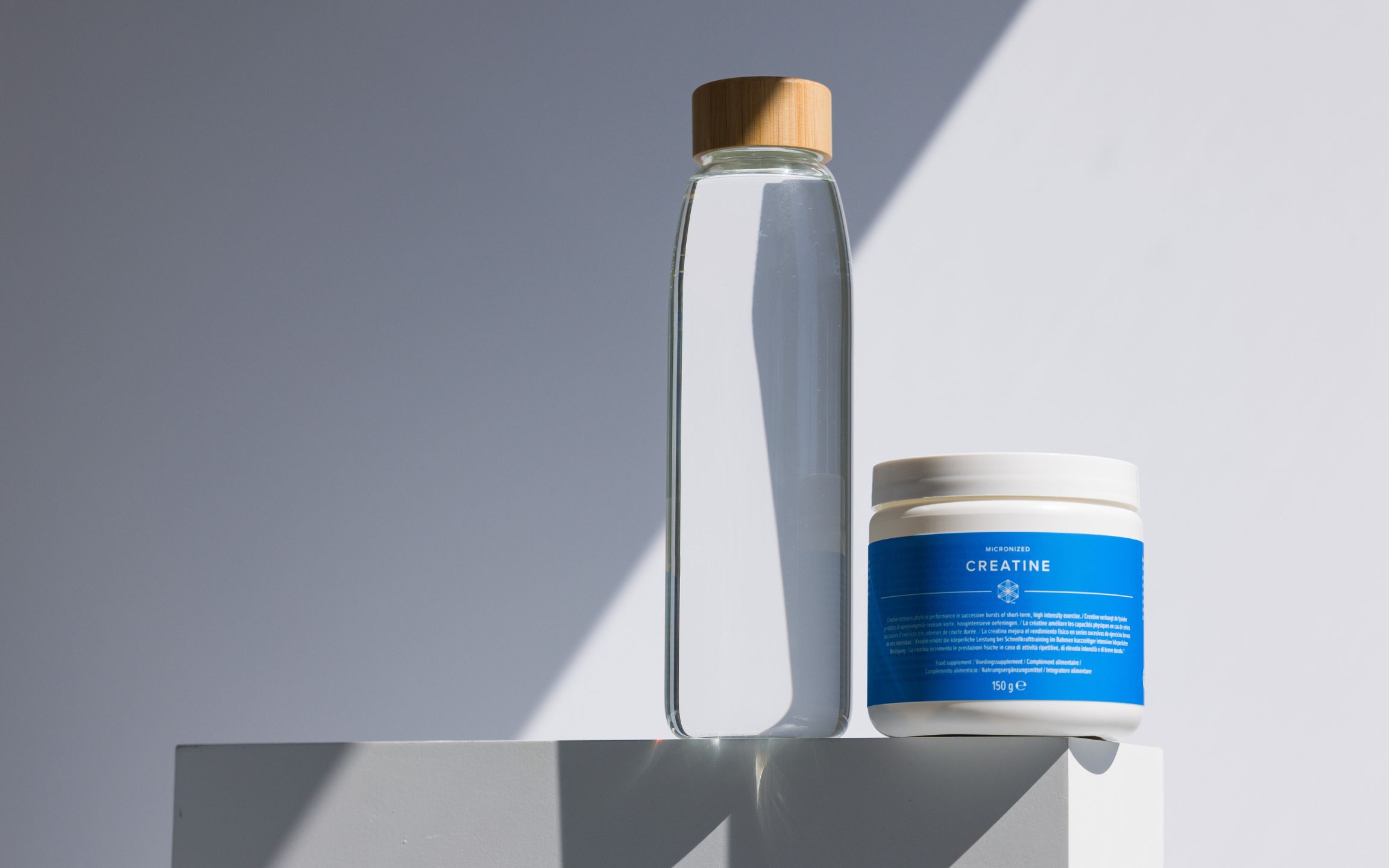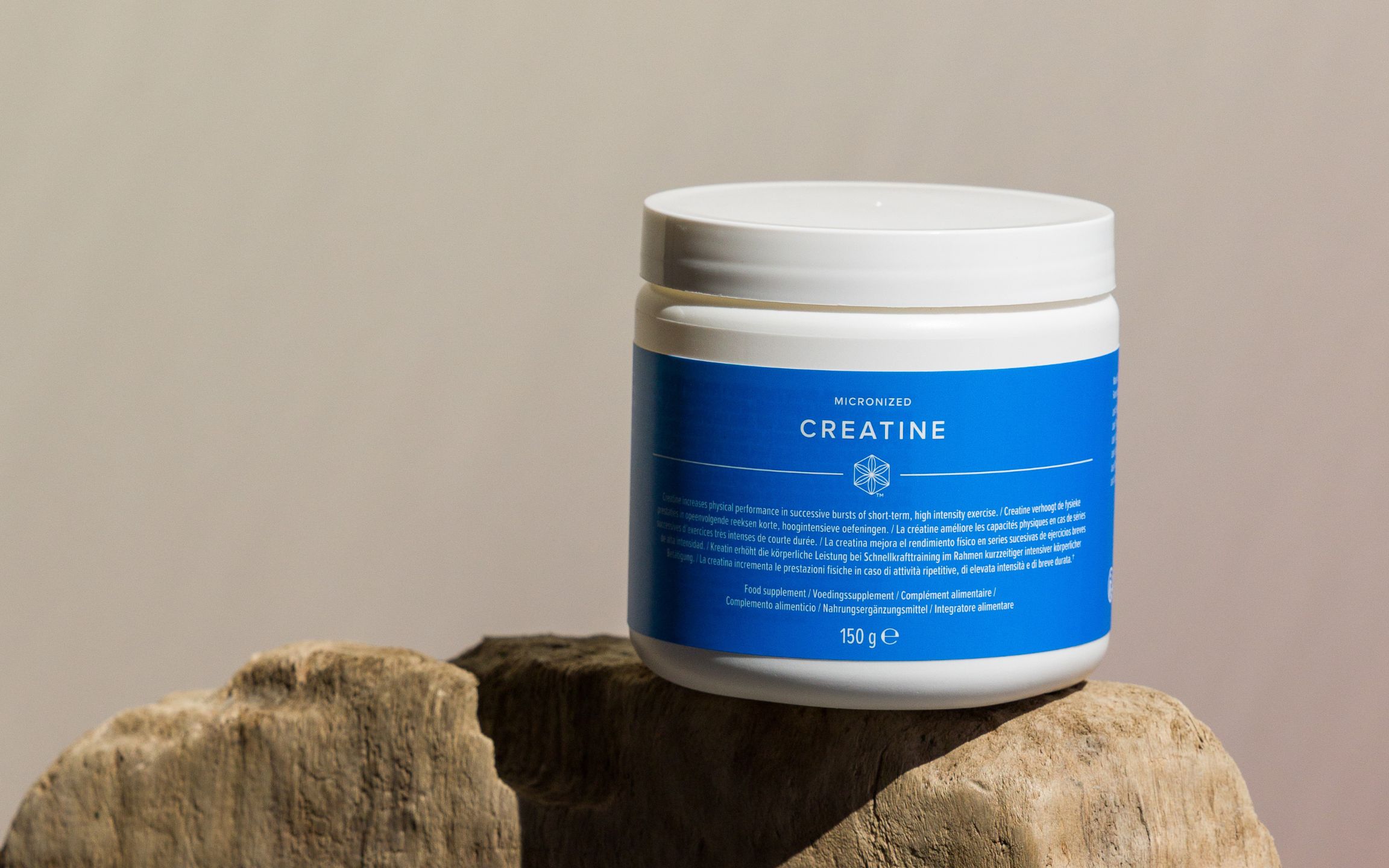What’s the best way to rehydrate post workout?
September 20, 2017,
Elaina Bird

It’s well known that we need to rehydrate after exercise to replace the water that is lost when you sweat. But did you know that when you sweat you lose more than just water?
Electrolytes such as sodium and potassium are also lost in your sweat. These minerals need to be replaced when you rehydrate during and after exercise to restore the balance of water and electrolytes in your body (1).
Why electrolytes are important
So, what are electrolytes? Electrolytes are electrically charged minerals that travel through the blood and other extracellular fluids (2). Sodium is the most highly concentrated electrolyte lost in sweat, and is needed by the body to help balance the level of fluids (1, 3). As a positively charged ion, sodium works in contrast with the negatively charged potassium to create cell membrane potential, which is essential for normal muscle and nerve function (4).
Maintaining stable sodium levels is especially important during an intense workout. Low sodium levels can result in a decrease in the amount of circulating fluids, which results in less blood volume and a lowered blood pressure, which can cause fatigue (5).
Potassium is another important electrolyte which helps to control the balance of fluids in the body, helps nerves and muscles to ‘communicate’, as well as helping your heart muscle to work properly (3, 6). A lack of potassium in the body can cause muscle cramping and weakness, as well as leave you with low energy. Even though far less potassium is lost in sweat compared to salt, it’s still important to restore depleted stores after a workout (4).
Refuel on carbs
It’s also essential to rehydrate with a drink that provides carbohydrates, as the body’s energy stores will have been depleted during your workout. More and more studies are suggesting that consuming carbohydrates during a workout can improve performance, endurance, and recovery (7, 8).
In addition, consuming carbohydrates immediately after exercise works to your advantage. It’s the time when your muscles are ready to store glycogen at a much faster rate (9, 10). Consuming carbohydrates in the form of monosaccharides, or simple sugars—as opposed to complex carbohydrates that will need to be broken down by the body—can increase the rate of delivery of the carbohydrates to be absorbed in the small intestine (11).
Introducing AMPED™ Hydrate
Sports drinks are a great tool to help rehydrate and restore electrolyte balance; however, many popular formulations tend to contain excess sugar and calories that can deter health-conscious exercisers from using these products.
With your goals in mind, Isagenix created AMPED™ Hydrate. This unique carbohydrate-electrolyte solution includes sodium and some potassium, and is also enriched with B vitamins and vitamin C. AMPED™ Hydrate also supplies the body with easily digestible carbohydrates that can be delivered to your muscles quickly. One of the benefits of consuming a carbohydrate-electrolyte mix is that sodium stimulates the uptake of sugar and water in the small intestine, which helps with rehydration (11).
No matter what exercise you’re undertaking, AMPED Hydrate helps to rehydrate, nourish, and energise your body to get the most out of every workout.
References
- Sawka MN, Montain SJ. Fluid and electrolyte supplementation for exercise heat stress. Am J Clin Nutr 2000;72(suppl):564S-72S
- NHS Choices. Electrolyte test. 2015. Available at: http://www.nhs.uk/conditions/Electrolytes/Pages/Introduction.aspx (accessed 05/09/2017)
- NHS Choices. Vitamins and minerals. 2017. Available at: http://www.nhs.uk/Conditions/vitamins-minerals/Pages/Other-vitamins-minerals.aspx (accessed 05/09/2017)
- Higdon J. Sodium (Chloride). Linus Pauling Institute: Micronutrient Research for Optimum Health. 2004 Feb.
- Sahay M, Sahay R. Hyponatremia: A practical approach. Indian J Endocrinol Metab. 2014 Nov-Dec; 18(6): 760–771
- NHS Choices. Potassium test. http://www.nhs.uk/conditions/Potassium-test/Pages/Introduction.aspx (accessed 05/09/2017)
- Rowlands DS, Swift M, Ros M, Green JG. Composite versus single transportable carbohydrate solution enhances race and laboratory cycling performance. Appl Physiol Nutr Metab 2012 Jun;37(3):425-36
- Wallis GA, Hulston CJ, Mann CH, Roper HP, Titpon KD, Jeukendrup AE. Postexercise muscle glycogen synthesis with combined glucose and fructose ingestion. Med Sci Sports Exerc 2008 Oct;40(10):1789-94
- Thomas DT, Erdman KA, Burke LM. American College of Sports Medicine Joint Position Statement. Nutrition and Athletic Performance. Med Sci Sports Exerc 2016;48(3):543-568
- Ivy JL, Katz AL, Cutler CL, Sherman WM, Coyle EF. Muscle glycogen synthesis after exercise: effect of time of carbohydrate ingestion. J Appl Physiol 1988;64(4):1480-1485
- Shirreffs SM. Hydration in sport and exercise: water, sports drinks and other drinks. Nutr Bull 2009;34:374-379




